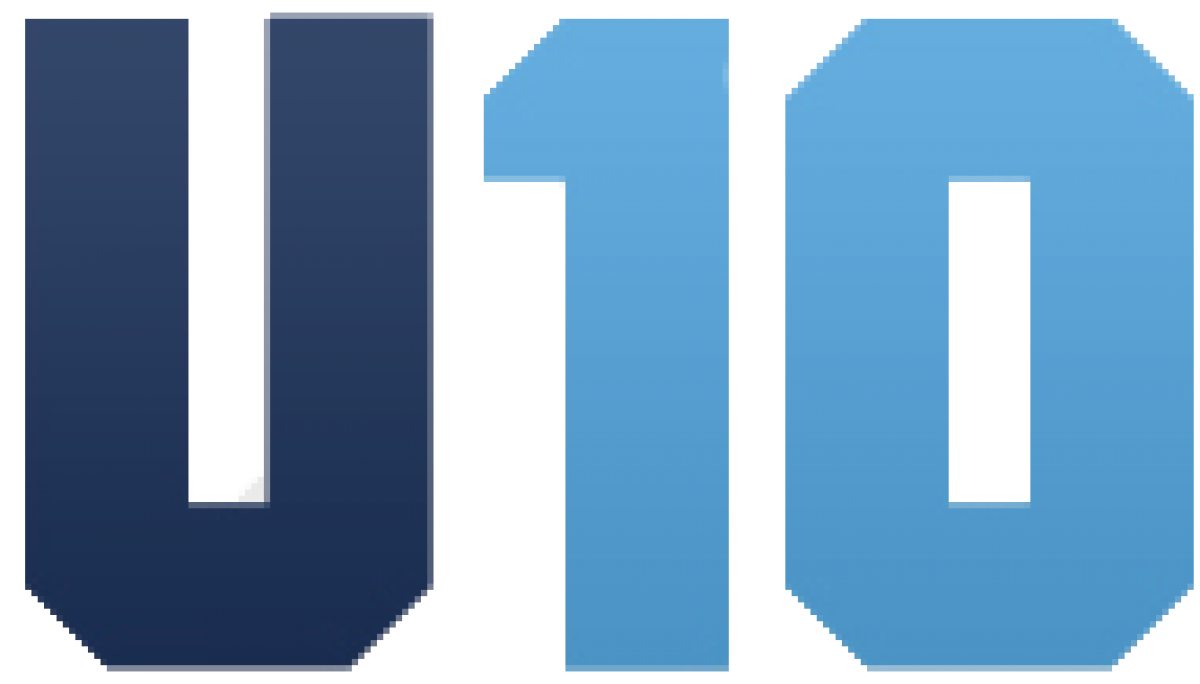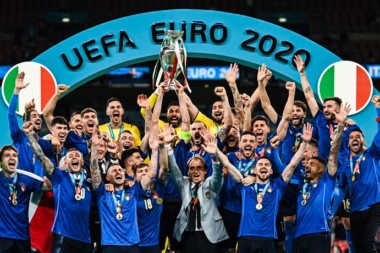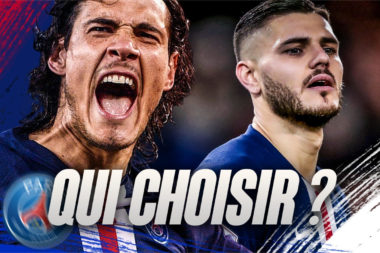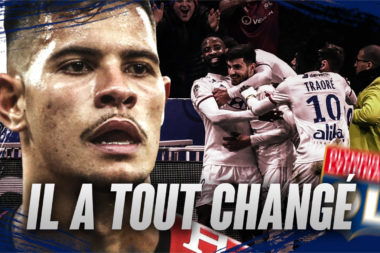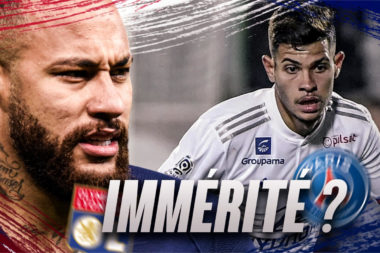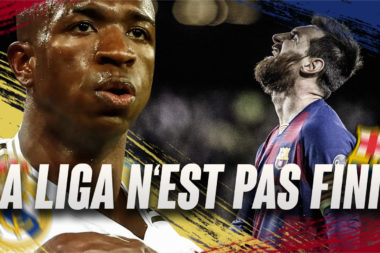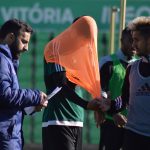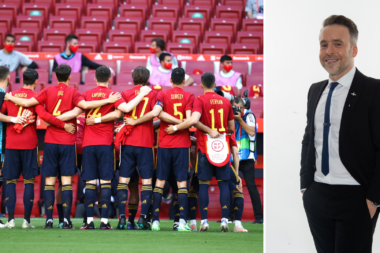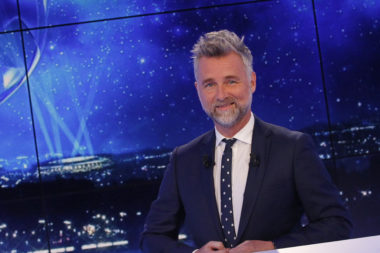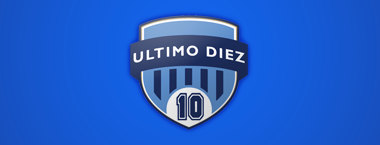Formed at university, without any past in professional football, gifted in tactics, Vitor Severino well represents the new generation of Portuguese coaches. Young and talented, he will soon be for sure in the spotlight. Interview with a clever man, that feels and lives football like all the other Portuguese love to.
Hello Vitor ! First, how is your season with Rio Ave going as you are seventh in the championship ? Was Europe an objective at the beginning of the season ?
The season in Rio Ave is going well, right now we are at the seventh place. But we didn’t start the season in Rio Ave, we came to the club when it was at round eleven. The head coach was working as FC Porto B head coach. He was the national champion in League 2 in Portugal with the FC Porto B team last year, and I had been working for the last three years in FC Porto too, first in the B team and then in the Academy (U14’s, U15’s, U19’s). So he invited me to come to Rio Ave and we started at round eleven. So we started with four victories in a row and we managed to put the team in the first eight places of the league. The objective when we came to the club were to finish this season in the first eight places. Of course inside the first eight places we wanted to state as good as we could. So if we can be seventh, better if we can be sixth, even better if we can be fifth and so on.. Now we are at the seventh place and we are happy to be fighting for the sixth place. And the sixth place this year will probably give access to the Europa League but the objective at the beginning of the season when we arrived was to be in the first eight places so we are now seventh, but still fighting for the sixth place. I can say that so far it’s being a positive season for us.
Well done .. great win ! pic.twitter.com/W9Aw2KpayC
— Vítor Severino (@VtorSeverino83) April 1, 2017
Again this year, you are not so far from a qualification in Europa League. What are the goals of the club in terms of Europe ?
As we were saying this was a different season for Rio Ave because in the last few years they had never changed the manager in the middle of the season but this year they did change. You know when you change a coach sometimes things become different. We came to the club at round eleven, the club was eliminated from the qualifications to the Europa League, we lost against a Czech team. We were also off the Portuguese cup so our focus was on the league. We were three points above the relegation zone but also three points from the sixth place. But still far from the fifth place that would give access to the Europa League. When we came we were very clear about the objectives and the objectives were to finish the season in the first eight places of the league. When we say we want to be in the first eight places we are not saying that we want to be at the eighth place. We are saying that we want to be in the group of the first eight teams. And then when we get to the last matches of the season, hopefully we will still be able to fight for the sixth place. But the goals of the club this season, with all the changes, were to finish the season in the first eight places.
In your team, you’ve got some players that come from Monaco, as Gil Dias or Adama Traoré. What do you think of the training/the formation of the young players in Monaco ?
Yes we now have in Rio Ave two players who are on loan from Monaco. We also had a third player, he left a few months ago, called Chérif, he is now playing in the Cercle de Bruges in Belgium. He was also here in Rio Ave but he didn’t have much playing time in our team. Gil Dias, I know him well because last year he was playing in the Portuguese league 2 and Adama Traoré I also knew him from the World Cup of the U20 or of the U21 I’m not sure. What I think is that they are young players with qualities but of course they need time to grow up like every single young player needs playing time. And what I think is, in the case of Gil Dias, I’m not sure but I think he has never played in Monaco ; for Adama Traoré it’s different as he played some matches for the club in the league and also this year in Champions League, and what I feel is that they are different players of course. They are really different in terms of the way they play, the characteristics of the players are different, but what I think is a very simple thing, and it’s what I think for other players in the team : when they are young they need to have of course good technical skills, good understanding of the game and good mental strength to be in competitive moments like playing in a professional first league or in European competitions. When we talk about this three dimensions, of course they need time to develop, we can not think about a young player and evaluate him considering just today. We must see what we can do for the player, for the future, for the next years that are coming. What we can do is develop the way they play in the training session and of course they need time, competitions, minutes. And they need one thing which is very important, that is to make mistakes, to make errors. When someone makes mistakes or errors the coach is very important because mistakes are part of the process and they need to grab those things, and they have to play to develop and to get better and better and better.
In Rio Ave, is the training/formation of the young players also very important for the future ?
Well, yes in Rio Ave the formation of young players is very important for the future. I believe that the academy players, the young players that we can develop, they have become more important every time, every year, and the club started to put more efforts to develop young players because this is the future, no ? And here we have young players that have grown considering the culture and the philosophy of the club. This is very good for every club. The difficult part is the gap there is between the U19 teams and the professional teams. In Portugal, we have the under 19 age group, and next we have the professional group. We have quality players sometimes that are already ready to play in the professional team so we need to give them time. The B teams that are in Portugal in league number two -because some clubs have professional B teams and this is very good to develop the players- give them time, give them minutes, give them the opportunity to make mistakes, and to have the maturation that they need to play in the professional league. Of course when they arrive they will make mistakes, when they come to the first team, but well they need time. If they don’t have time sometimes we have a wrong evolution of the player. But of course we have to think about this. To have this young quality players is a really important step for the success of the club.
Carried by a team of young players, the club is not so far from a feat in Champions League. Is it the year of Monaco ?
Monaco is an excellent club, an excellent team. I watch every single match that I can watch because it’s part of my job as well, to develop, to learn, to watch high level matches. We can say that this could be the year of Monaco yes, I agree with you, but this is also part of a process because Leonardo Jardim didn’t come this year to the club and time was given to him, to put his philosophy to the club. Maybe last year if we had talked about this, some people would have been sceptical about his job because the results weren’t there. This is a mistake that sometimes we make in football when we evaluate players and when we evaluate teams and also when we evaluate coaches because we are just concerned about the results and not so concerned about the process. And of course when one coach goes to a club it’s not only a coach that goes to a club, he comes with a methodology. Like I was saying about the young players, the philosophy, the training methodology also needs time to develop. In six months, when you have three, four, five, six new players everything changes and nobody cares about that. The only thing people look at is the result. And if you don’t have this result people say that you are not good. And that’s not true at one hundred percent. So I know the qualities of the coach, the work he has done in Portugal and also in some other countries. I’ve known him since the beginning when he started in Portugal and of course he is having the success everybody knew he was gonna have because he has good players, a good understanding of the game, the teams plays well… You can see that the young players are improving and well we can say that it’s the year of Monaco. Even if they don’t win anything we can evaluate the club like that.
This great team is driven by the Portuguese coach called Leonardo Jardim. What do you think of him ?
Leonardo Jardim started in medium clubs in Portugal. Actually he started in small and medium clubs in Portugal. He managed to come to one of the three best clubs in Portugal, Sporting Lisbon. He didn’t win the title but his team played well, with quality. I can talk about this because I’m a coach. I don’t judge other people by the results but I like to see the quality of the team. Borussia Dortmund for instance, they played against Monaco. You can say that they are not a good team or that they are not doing a great season because they don’t have the results but considering the game, the strategy or the understanding of the game it’s one of the teams that I like to see most. They are part of the four or five teams I watch every match of because of their style and the way they play. Leonardo Jardim is a great coach and for me it’s not a surprise. I’ve seen his team play since the beginning of his work and it’s great, this is just a normal thing and for him it will get better and better.
Jose Mourinho, Fernando Santos, Marco Silva or even Sergio Conceicao in France… Is there a special type of Portuguese coach ?
Yes that’s true we’ve got those names of Portuguese coaches in the top level. In competitions around the world we have even more names and you will see that in the future. More names will appear because in Portuguese football you’ve got a lot of great coaches. I can’t say that there is a type of Portuguese coach though. Those names that you talked about are all different but they have one thing in common : the understanding of the game and the transfer between the game model and the training methodology, that is the key. And I believe that if you ask me what is the main characteristic of the Portuguese coach I would say that it’s the ability to develop the game and to put it in methodology, transform the ideas in exercises. Also the way they organize it during the week is the main topic I can say that would characterize Portuguese coaches. I’m lucky to be all around the world for conferences, courses working with some other coaches, watching training sessions, watching top world level clubs. Sometimes we can compare the philosophy and can’t say that one Portuguese coach is better because every single coach is different, because they work with different styles which is very important because a Portuguese coach can work in every country around the world. The major thing for me is the way they transfer the game idea to the training process.
Now, let’s talk about you. You are not a coach but an assistant coach. What is, according to you, the difference between the two jobs ?
I’m an assistant coach. This year I’ve got this function. I’m very happy with my role because I can now work in the first league, in the first Portuguese league. I’m still young, I started as an assistant coach with the U13. I don’t have a past in professional football, I’ve never played at a professional level. I went by a different way. I finished playing and started university, and at university I went for physical education, specialization in football. And well I started my first steps. First I was an assistant coach in the U13, I was very young at the time. Then inside Academica where I started my career I began to climb a few steps, being assistant coach for a few years, and then head coach, and for my last three years in Academica I was the manager of the youth academy, the responsible of all the youth managers. Then I moved to FC Porto, and to Rio Ave this year.
So when you talk about a head coach and an assistant coach basically you talk about two coaches who have different roles. The head coach would be the brain of everything, the brain of all the ideas. The role of the head coach is also to give the energy and the energy is the information. The assistant coach must be aware of the ideas and must understand every single part of the game plan, of the philosophy that the head coach has in his head. If he knows this, it’s easy for him to help making the training sessions. The main difference is that one is the brain of everything and the assistant coach must share the philosophy and put energy in the process. Energy here is information. When we say that the assistant coach must understand the ideas it doesn’t mean that sometimes the information he gives can’t be different from what the head coach is thinking. That’s the rich part of the process. The assistant coach has also the role of helping to improve, basically thinking and finding solutions to the problems the game can give us. We always have plans for the game, but most of the time the game has plans for us. That’s what we try to develop during the training sessions, to have players with an open mind and a flexible way of thinking, players that don’t think of the game in a close or mechanical way. And that’s the way we walk in our holistic view of the four or five dimensions : technical, tactical, physical and psychological. We can include social if you want.
What does your everyday work look like ?
My typical day of work is like this. I wake up very early, I go to the club and I dress myself with the training kit. I have breakfast with the technical staff. Then we have a meeting with all the technical staff. The head coach gives us the information he wants about this training session. The planning is usually done the day before. We talk about that, we organize the training session. Then all the technical staff including me we go to the pitch. We organize the exercises. Ten minutes before the session the head coach comes to the pitch. He takes a look at everything, we can chat a little bit about the exercises, the spaces, we reorganize if we need and we start the training session. After the training we have a new meeting, we evaluate what we did during the training session and we start to put all the objectives of the training session of the day after. We repeat this process every single day. Of course it depends on the day, if it is a recovery session or if it’s a session for a « pre-match » we need to develop a few things like documents for strategy. Sometimes we can also have moments with video, meeting with the players but basically it’s this. We come to the club, we have three training session meetings, analysis, preparation of the next training session and then we have to rest a little bit, and take time at home to organize things for the next day.
http://twitter.com/VtorSeverino83/status/844887589324832770
Speaking of the assistant coach, we must talk of Brian Clough’s story with his assistant coach Peter Taylor. For you, is the relation between the coach and his assistant as fusional as in this story ?
Well this is a very interesting story everybody knows. Honestly I believe in one thing : in order to work well the technical staff needs one thing, and that thing is trust. We must trust every single member of the staff. You are here talking about the head coach and the assistant coach but today as you know, I’m an assistant coach, but we don’t work only with two persons. So the head coach Luis Castro as I was saying is the brain of everything, the leader of the technical staff and next there is me plus four other people. Everyone has something to do during the training session. Someone could be concerned by keeping, others by the video, others by putting the GPS on the players for the data for instance. About the relation between the head coach and the assistant, I would put it this way. The first thing is trust. Trust, you can put it in a personal way, because everybody must trust each other, and the head coach must trust his assistant because this job is about making decisions everyday. But also the head coach must trust the assistant coach considering the tactical part of the game because we will share a game idea, a game philosophy every single day. So we try to train every time in a specific way. If we have a game style like we have every single drill will be connected to that game idea. To have this trust is very important in the process.
Sometimes, we say that the assistant is the brain, the best in football, in tactics, and the coach is the one who is better in the social dimension. Is that true ?
I don’t agree with this. Today in modern football all the people that are around the coach, every single member of the staff must understand a little bit of everything. That’s the way we see this and that’s the way the other Portuguese coaches see this. We don’t separate tactics from the rest. Sometimes we can be specialized in the physical dimension, we can have psychologists but as I was saying I don’t agree with this because the head coach is the leader and it’s important for him to be the brain and not the assistant coach. So the brain in my opinion is the head coach. A lot of information, a lot of energy. And energy is a thing you can see during the session, during the games. The assistant coach is another pair of eyes, and it’s maybe a smaller brain compared to the big brain that is the head coach. He must be in line with the head coach but they must both be aware of everything. But I don’t agree that one is better or the assistant coach is something like the brain. That’s not how I see the way for a technical staff to work.
Is it possible for a coach to work without his assistant and vice versa ?
The head coach will need his assistant coach, and the assistant coach does not exist without the coach so it’s a relation as I was saying. It’s a complex relation, not only the coach and the assistant coach, but the coach, the assistant coach, the goalkeeper coach, the medical staff, psychologists, directors, managers, everybody is important. Today football is an holistic thing but as I was saying, the brain of everything, the coach and the assistant coach have an important role and it’s important to give energy and information. The assistant coach doesn’t need to say everything he sees or everything he thinks to the coach. He needs to put the filter and to give specific and good information. Information that is objective to help the coach make decisions.
We were talking about Fernando Santos a few questions ago. This summer, the victory of Portugal was not only that of the coach, but also that of the whole staff isn’t it ? I think we too often forget the men of the shadows don’t we ?
The victory of Portugal was the victory of the country. We are a country of football, everybody loves football with passion. Every single kid wants to be a football player, and if you can’t be a football player everybody wants to be a football coach. Everybody wants to have a job relied to football. We are a country of football and this was a great victory for everything. For Fernando Santos as he is a great manager and it was fair that he won the title. Of course it was a victory for all the staff. When you talk about the man of the shadows what I think is this : if you are an assistant coach it’s normal for you to be in the shadow, if you consider that this shadow is not to be on the first page of the newspapers. That’s a normal thing. And also it’s a good thing because exposing yourself to the social media is not always a good thing. I don’t consider that is being in the shadow. Being in the shadow is when you don’t have ideas, you don’t have any personality, you don’t have any identity and you are not able to give energy to the head coach and help him make decisions and improve the players. So for me it’s a false question because it’s normal for the stars or the head coach to be in the spotlight, because when one thing is getting wrong they are also the first to give the face. For me being in the shadow is working without identity, personality or without the ability to help the head coach advance the players, the game and the philosophy.
As you saw him playing when you were in Academica, what can you say about Eder ? First, about the man outside the pitch, and then about the player ?
Eder, first of all is a great human being. When I first started to coach, Eder was also making his first steps in professional football. At that time, when I was working close to him but not with him because I was in the academy and he was with the first team, you couldn’t find someone that had a negative thing to say about Eder. Everybody would say that he is a great human being because he is. I remember that for the kids of the academy, the hero was always Eder because when he would arrive he would go to the pitch, close to the young kids, talk to them, play football with them. And as he never changed about that, he was and he is a great human being, a very humble guy, and he is an example for everybody as he achieved to success despite a lot of different problems in his life and he is still the same person, humble, simple. And for Portugal of course he is a hero and everybody will remember Eder forever. About the player, I remember that when he started playing in Academica people started to call Eder, « Ederbayor », you know, like Emmanuel Adebayor. So he started as a young talented kid with a lot of things to improve. But he had a talent to make goals, to play as a striker. He managed to make a beautiful career and he is a good player in my opinion with lots of qualities.
